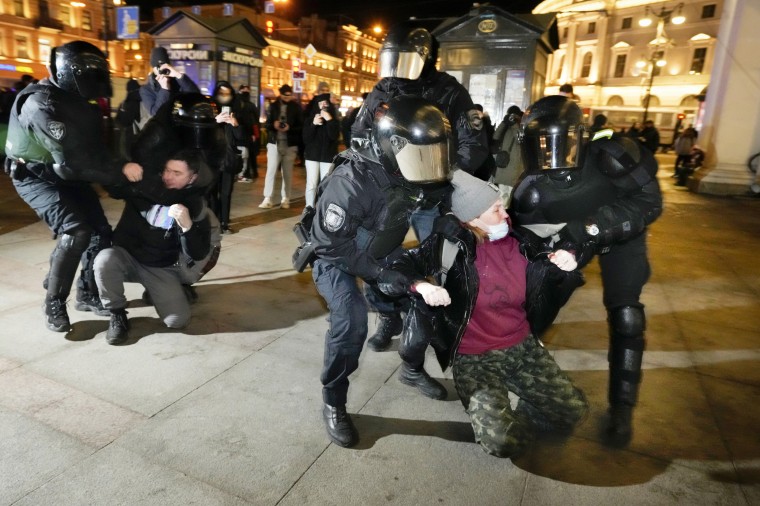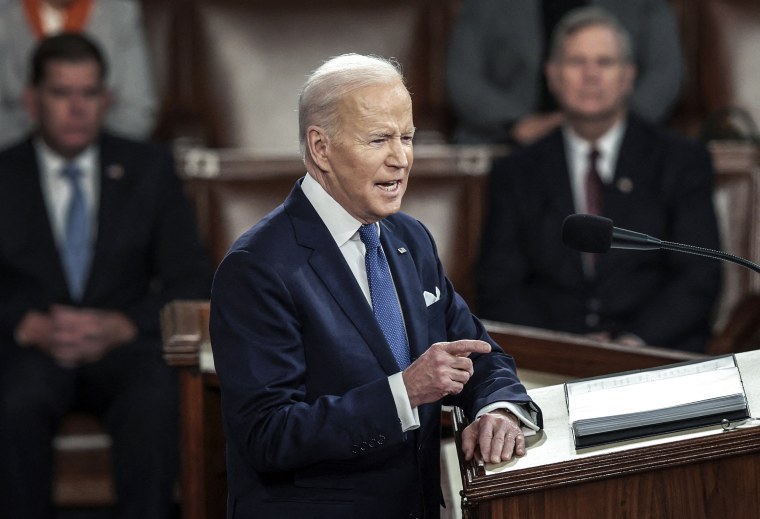The currency is nosediving, the market is in panic, and frantic residents are trying to withdraw savings from increasingly barren ATMs. Meanwhile, anti-war protesters are joined by members of the billionaire elite who have broken rank against their embattled president. There are questions about the country’s capacity to survive the crisis — and what it may do next in desperation.
This is not Ukraine under siege, but rather the blowback for its invader, Russia.
When President Vladimir Putin launched his war on Ukraine, few predicted the conflict would have such immediate consequences for the Kremlin and the Russian people.
Not only has it drawn the anticipated barrage of Western sanctions, it has also unleashed boycotts of Russian sponsors by Western businesses, countries’ closing their airspace to Russian planes and international sports and entertainment events’ freezing out Moscow's competitors.
Almost overnight Russia has become a pariah.
The ruble, its currency, hit record lows after it lost 40 percent of its value Monday. And shares plummeted so dramatically that the Moscow Exchange stock market ceased trading for three days straight. There is even a chance Russia could default on its debt for the first time since 1998, the Institute of International Finance, a banking lobby group, has warned.
In Moscow, there were telltale signs that Putin’s assault was harming his own people. Lines snaked outside ATMs as people tried to withdraw dollars to prevent their savings’ diminishing. And there was disruption on the subway as contactless payments systems went offline and more people resorted to old-fashioned paper tickets that they had not used in years.
“Things are becoming more expensive already,” said Marina Vinogradova, 39, a musician living in Moscow who was having a coffee in one of the city’s malls this week. “Everyone is scared. We don’t know what’s going to happen.”
She said her husband was among those unable to withdraw dollars. A friend’s house purchase fell through because savings no longer had the same value as just weeks earlier, she added.
And after the U.S. and Europe agreed to cut off Russian banks from the crucial SWIFT system, which handles international bank payments, some Moscow hotels requested that customers settle bills early in case their credit card systems no longer worked.

It is hard to get an accurate sense of the weight of public opinion in Russia as a result of Putin's yearslong crackdown on dissent. But even in a county that routinely stifles political opposition and free speech and where the media is dominated by state-run Kremlin mouthpiece TV stations, signs of disquiet are clear.
A survey by the radio station Echo Moscow found that even in this information-restrictive environment, more than a fifth of Russians said they were against the war. On Tuesday, the station was taken off the air for being too critical of the Kremlin, its editor told The Associated Press. The office of Russia's prosecutor general accused it of spreading "false information" about the conflict.
Protests are even further curtailed right now under the guise of Covid-19 safety. But even so, countless thousands of people across the country have protested the invasion. Of those, almost 6,500 people have been arrested since Thursday, according to the Moscow-based independent human rights group OVD-Info.
It is undeniable that there is real opposition to Putin's invasion. A Change.org petition started by the veteran human rights campaigner Lev Ponomarev had topped 1.1 million signatures by early Wednesday.
Meanwhile, 6,000 medical workers, 3,400 architects and engineers and 500 teachers have signed separate open letters against the war — a rare mass statement of defiance in a country where merely criticizing the government can lead to arrest.
In an attempt to control the narrative, state-run TV has downplayed the war as a minor “operation” confined to Ukraine’s Russian-speaking east. And the government’s communications regulator said it is limiting access to Facebook, accusing the platform of “censoring” Russian media.
Nevertheless, opposition has reverberated into the upper echelons of Russian society: Russian celebrities and public figures have denounced the war; Elena Kovalskaya, the director of a state-run theater in Moscow, quit her job because she did not want to continue receiving a salary from a "killer" like Putin; and Garage, a prominent contemporary art museum in Moscow, said it was closing until "the human and political tragedy" in Ukraine was stopped.

But perhaps even more surprising is the intervention by several Russian oligarchs — billionaires who got rich in the carve-up of the Russian state in the early 1990s, many of whom have links to Putin.
Mikhail Fridman, a co-founder of Russia's Alfa-Bank, who, according to Forbes, is worth almost $13 billion, was one of those sanctioned this week by the European Union, which described him as "a top Russian financier and enabler of Putin’s inner circle."
Fridman, who was born in Ukraine and has denied the allegations as "defamatory," moved Monday to distance himself from Putin's war. In an open letter to staff members, he said that "war can never be the answer" and that "this crisis will cost lives and damage two nations who have been brothers for hundreds of years."
The message from the West has been clear: The days of Russian oligarchs’ orbiting Putin and criticizing the West — while mooring their yachts in Monaco, partying in London and Paris and educating their children at elite Western schools — are over.
In his State of the Union address Tuesday, U.S. President Joe Biden warned the oligarchs, "We are coming for your ill-begotten gains."
All of that contrasts with the mood before the invasion, when former Russian President Dmitry Medvedev, now a top security official, dismissed the West's "woeful sanctions" as "political impotence."
Kremlin spokesman Dmitry Peskov acknowledged Wednesday that "the Russian economy is now experiencing a serious blow" but maintained that "there is a margin of safety. We will stand on our feet."
He told reporters that "support for Putin’s actions is very high" and that "this gives strength to the president."
In reality, Putin faces pressure at home and abroad. With the invasion going slower than expected, he has ramped up his bombing against Ukrainian civilians and threatened the West with nuclear war — which could engulf many of Russia's 144 million people, too.
“F--- Putin, f--- the war,” one man, age 31, said in Moscow this week.
“We are really afraid that he can start a nuclear war,” he said, declining to give his name because of fear of reprisals by Russia’s security services. “I think he can because he’s crazy.”
